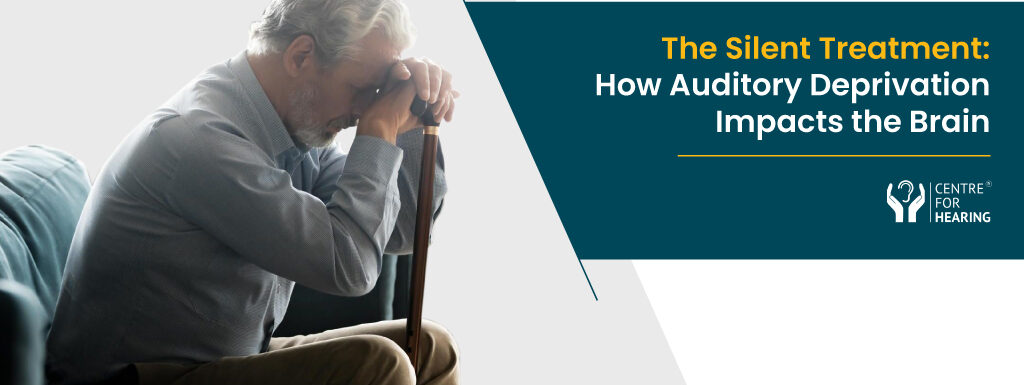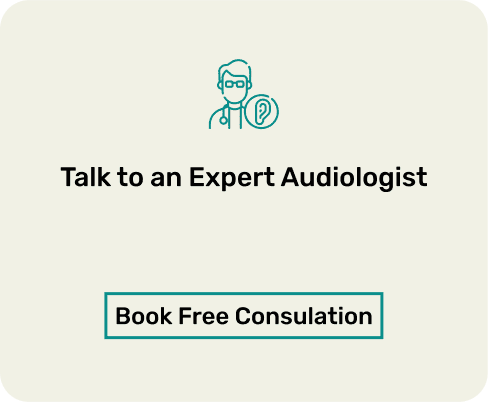Auditory deprivation is a condition in which the brain is deprived of certain or all sounds for a prolonged period of time. This deprivation leads to difficulties in processing auditory information—in other words, difficulty comprehending certain speech and sounds, i.e., hearing loss. If unresolved, it may increase the risk of depression, dementia, cognitive decline, and social isolation.
Due to inactivity, the auditory system also undergoes atrophy. The brain areas responsible for processing them receive less stimulation, and these pathways also deteriorate over time from lack of use.
Fortunately, hearing aids can address this to a certain degree and significantly improve the quality of hearing and, therefore, of life. On top of that, these devices come with advanced technology that can be tailored to individual needs and lifestyles.
In this article, we will discuss how hearing aids provide essential support for those experiencing auditory deprivation.
How Does Auditory Deprivation Affect the Brain?
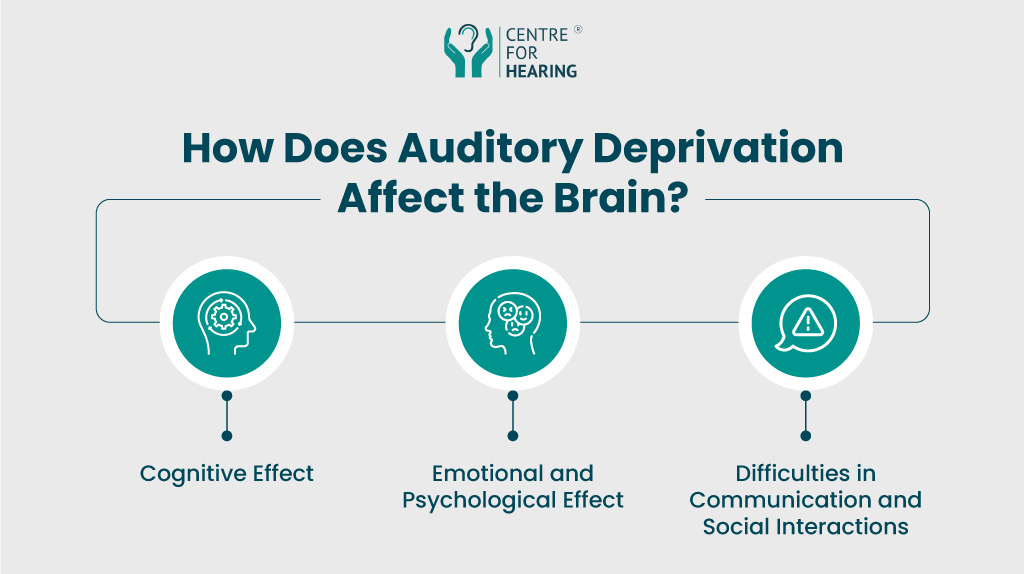
Here is how auditory deprivation can wreak havoc:
Cognitive Effect of Auditory Deprivation
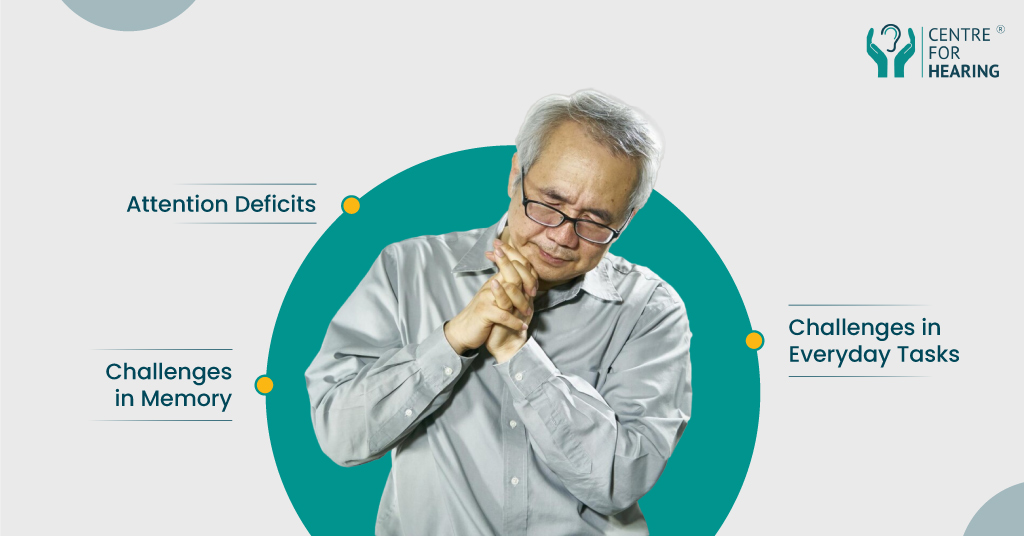
Auditory deprivation’s consequences are far-reaching; it disrupts memory, attention, and general cognition.
Challenges in Memory
Individuals with untreated hearing loss often have difficulty retaining information, such as recent conversations or calling back long-term memories. Over a prolonged period of deprivation, hearing loss has also been linked to dementia and Alzheimers.
Attention Deficit
Auditory deprivation makes it harder to filter out background noise, disrupting concentration and focus. This is similar to trying to read in a noisy café where distracting conversations compete for your attention.
Challenges in Everyday Tasks
Auditory deprivation makes simple tasks like reading and conversation difficult. This leads to frustration, reduced self-esteem, and further decline in cognitive performance.
Emotional and Psychological Effects of Auditory Deprivation
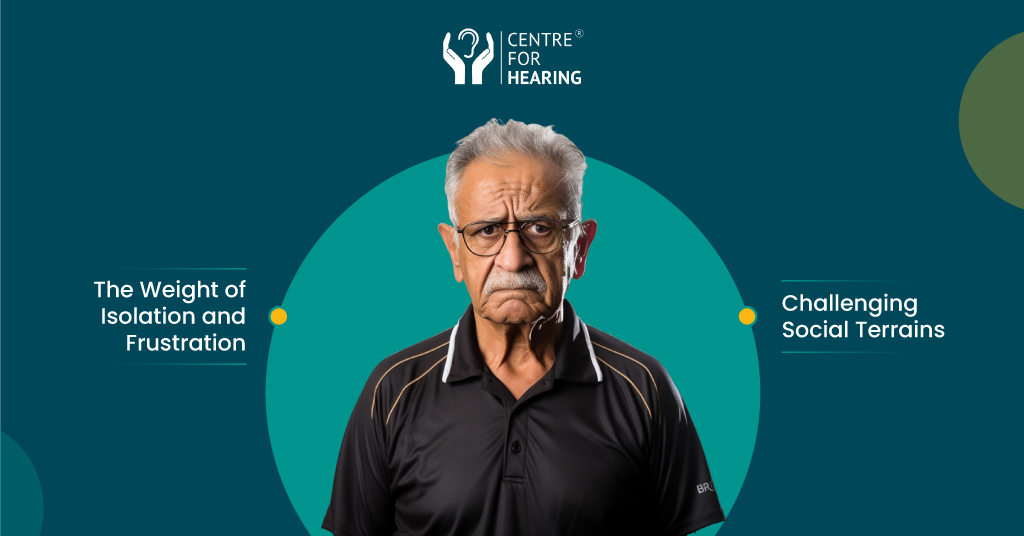
Without sounds, emotional and psychological status can be significantly affected, which may cause a person to feel alone, helpless, depressed and anxious.
The Weight of Isolation and Frustration
The frustration of trying to hear in background noise can be isolating, leaving people feeling alone even when surrounded by others. This emotional burden can lead to depression and anxiety.
Social Anxiety
People with auditory deprivation often face anxiety and stress in social situations. The constant strain of trying to follow conversations can be mentally exhausting, leading to a sense of isolation. Navigating everyday interactions becomes a challenge.
Difficulties in Communication and Social Interactions
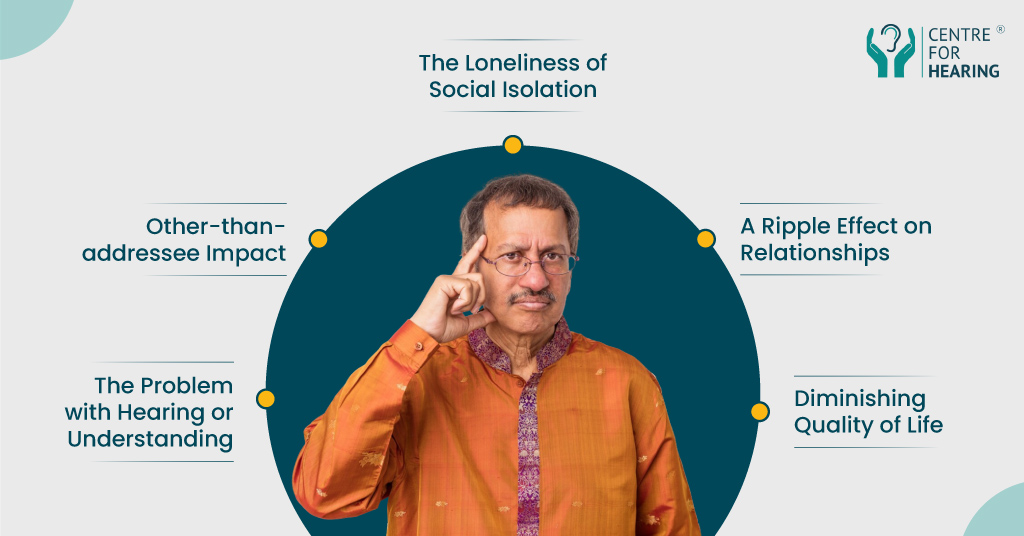
Both individuals grappling with hearing loss and their social circles suffer from communication problems:
The Problem with Hearing or Understanding
Conversations are difficult due to sound distortion and missed signals against the noise backdrop, just like putting together a jigsaw puzzle without having all its parts. This annoyance prevents effective communication, thereby breeding strained interaction and obstructing social ties.
Other-than-addressee Impact
Auditory deprivation affects not only the individual but also those around them. Family and friends may need to adapt their communication, potentially leading to misunderstandings and frustration.
Diminishing Quality of Life
The isolation of auditory deprivation can feel just as lonely as being constantly surrounded by people. Life loses its vibrancy, and finding genuine connection becomes a struggle. This cycle of solitude diminishes the quality of life and severs meaningful bonds.
Check here to get a better perspective of hearing loss, the effects it has on people’s lives, and how it affects you.
Hearing Aids: A Promising Solution for Auditory Deprivation
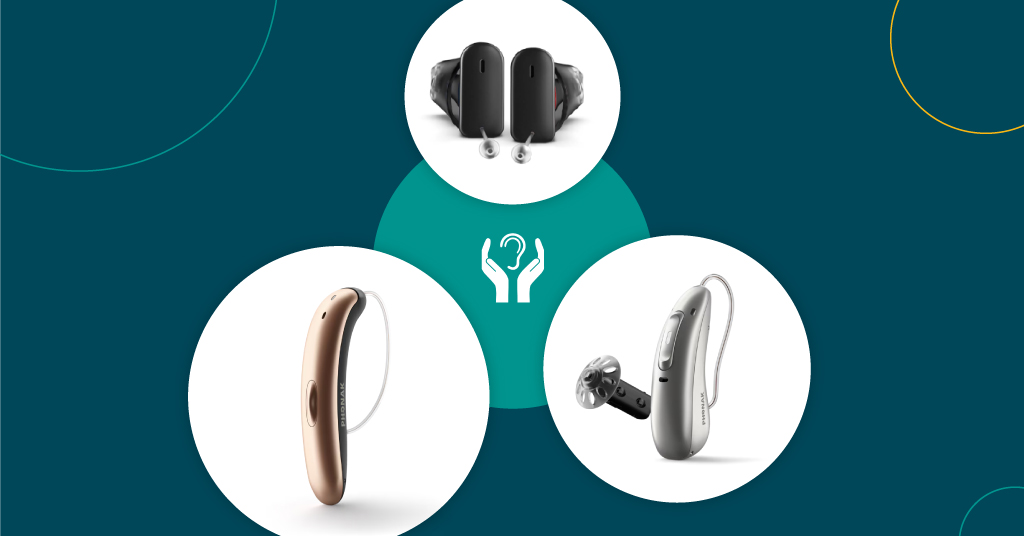
Here’s how hearing aids work and how they help cope with auditory capacity loss:
Amplifying Sound and Enhancing Clarity
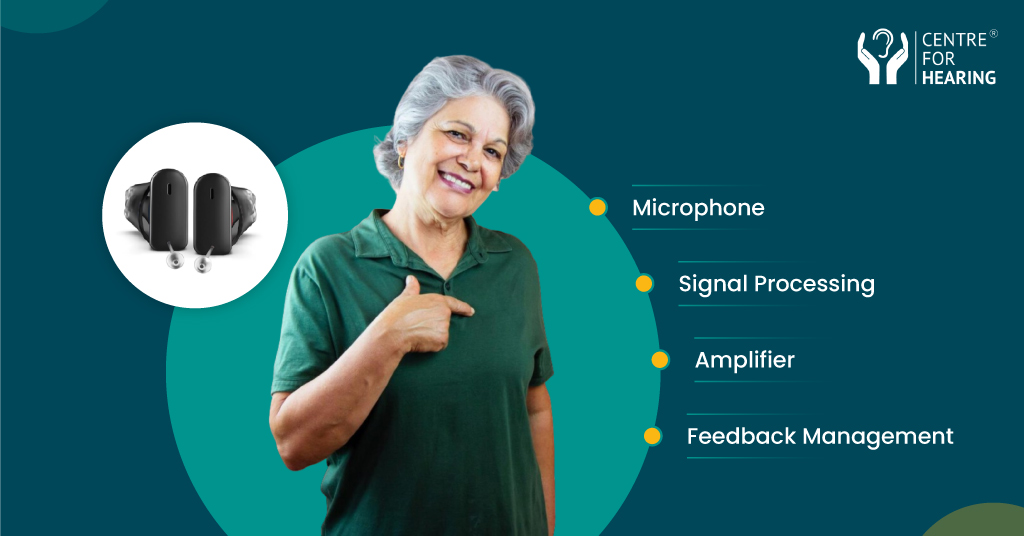
Microphone:
The microphones capture the sound waves that surround the environment.
Signal Processing:
A Digital Signal Processing (DSP) instrument assesses the incoming sound signals and increases the volume of the sound according to the user’s hearing loss profile. This ensures that soft sounds can be heard and loud sounds are comfortable.
Amplifier:
The sound signals processed are then finally amplified based on the user’s volume preferences. This helps to fill the gaps caused by hearing loss, enabling individuals to hear sounds more clearly and at much better levels.
Feedback Management:
Hearing aids use a feedback management system to reduce feedback noises and whistles. The system keeps track of such feedback and automatically changes the output volume to minimise or eliminate the feedback sound while preserving the original sound’s clarity.
Check out a must-read professional guide on hearing aids.
Facilitating Communication and Connection
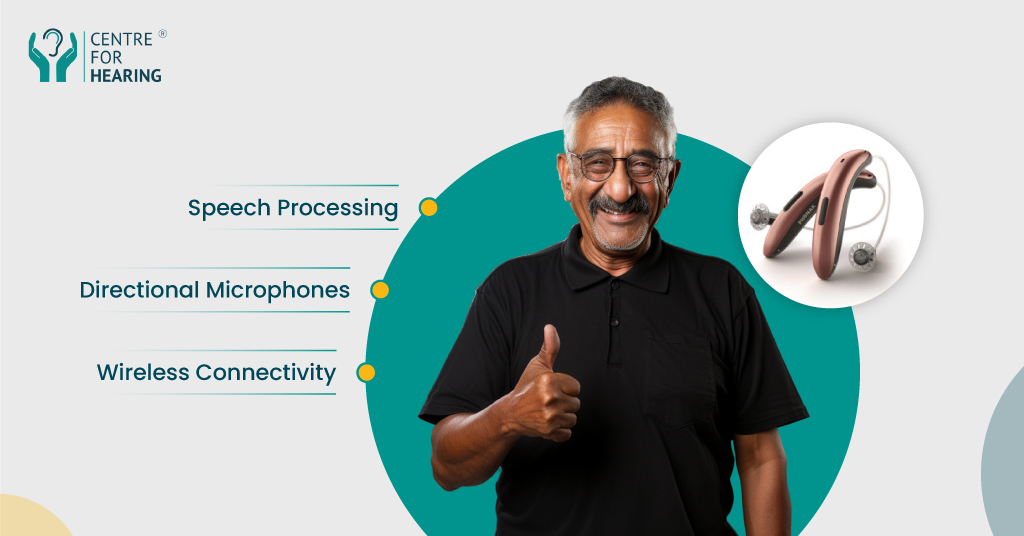
Speech Processing:
Some hearing aids use advanced algorithms to separate speech from background noise, making conversations easier to understand.
Directional Microphones:
Many hearing aids use directional microphones to focus on speech coming from the front, making conversations clearer even in noisy environments.
Wireless Connectivity:
Many modern hearing aids feature Bluetooth connectivity for direct audio streaming from phones, TVs, and other devices. This delivers clearer sound and reduces distracting background noise.
Wondering if hearing aids are effective? Here are 14 important factors to consider before purchasing one.
Rediscovering the Joys of Everyday Sounds
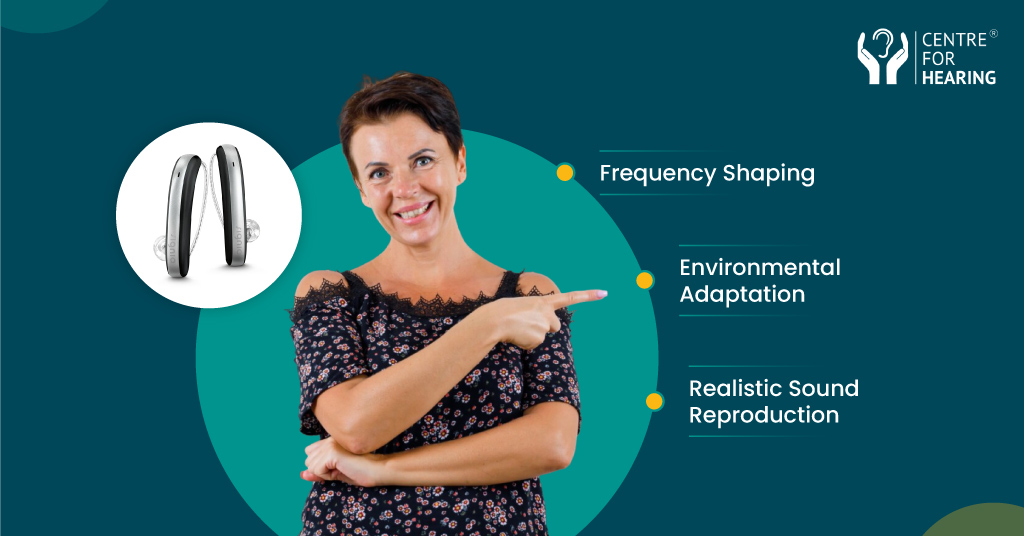
Frequency Shaping:
Hearing aids can enrich the frequency response by modifying sounds so that they can be heard correctly. This individualised sound experience allows people to hear all variations of sounds, including the faint tones of bird songs or the rhythm of music.
See how modern hearing aids can cope with typical issues like whistling and static, offering thus better sound quality and individual experiences.
Environmental Adaptation:
Self-adapting hearing aids automatically change settings to suit the environment. For instance, in a quiet environment, a hearing aid will work on amplifying soft sounds, while in a noisy environment, it will work on speech clarity and noise reduction.
Realistic Sound Reproduction:
Modern hearing aids strive to deliver a natural listening experience, preserving the full range of sounds as they occur in the real world.
Check out the surprising health advantages of hearing aids that go far beyond your hearing!
Centre For Hearing®’s Comprehensive Hearing Assessments and Services
As one of India’s leading hearing care facilities, Centre for Hearing® offers a range of customised services for various types of hearing issues, such as diagnostic audiograms by competent audiologists who, along with our operating surgeons, use audiometry, CT scans, and MRIs, psychological examinations, and blood tests for the possible candidates of cochlear implants.
We provide a variety of solutions, such as hearing aids of various types and designs, selected based on the client’s profile and preference, with adjustments done for the best performance. Centre for Hearing® presents a wide selection of hearing aids from top brands like Phonak, Oticon, Signia, Starkey, Widex, and Resound to meet your individual needs.
Check out the extensive range of hearing aids we offer and also look at the types of hearing aids with their prices.
Centre for Hearing® extends its quality care across India, with facilities in Mumbai, Gurgaon, Delhi, the Chandigarh Tricity Area (Chandigarh, Mohali, Panchkula), and select locations in Punjab (Ludhiana, Patiala, Jalandhar).
To book your consultation or learn more about our services, contact us now!

